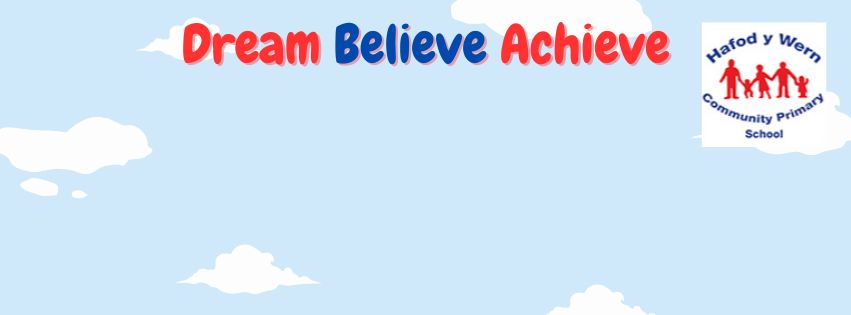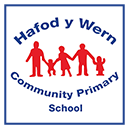School Priorities

The following are our main priorities for the academic years 2024- 2027:
Priority 1 - Reading |
Priority 2 – Wellbeing and attitudes to learning |
Priority 3 -Teaching and Learning Experiences |
Priority 4 – Teaching and Learning experiences Curriculum |
|
Rapidly raise attainment of pupils’ outcomes in phonics and reading. Setting a standard in school that we teach ALL children to read and encourage enjoyment of reading |
Embed a culture of respectful behaviour, happiness and kindness where relationships, curriculum, policy and procedures in school promote positive attitudes to school, raise pupil and staff wellbeing and encourages learners to attend school |
Improve the quality and consistency of feedback to ensure pupils understand how to improve their work and act upon teacher input to make progression |
Strengthen curriculum offer so that children have opportunities to build on previous skills and knowledge and have opportunities to apply a wider range of numeracy and digital skills in their learning across the curriculum |
|
Why is this a priority? Assessments in autumn term 2024 revealed 161 pupils from Reception to Year 6 were working at a phonological level in their reading with many significantly behind within the phonics scheme Read Write Inc. Therefore, those who were in key stage two had significant barriers to accessing Literacy and the curriculum. Reading is fundamental. For children from disadvantaged backgrounds, reading can open doors to ensure further experiences, learning, education and employment. Reading attainment in Wales is lower in comparison to previous years and significantly lower than England. |
Why is this a priority? Upon reviewing previous school culture, staff (teachers, leaders and support staff) voiced that the behaviour of pupils was a significant area that causes increase workload and has the most impact on the wellbeing of all in school. Many external factors contribute towards behavioural issues and the risk in such behaviours increases in areas where socio-economic disadvantage is significantly higher than average. The rise in incidents is significant and concerning. Good behaviour, safety and a culture which fosters happiness and kindness will facilitate better learning outcomes as well as better health and wellbeing outcomes. School attendance rates remain low. Attitudes towards school are a challenge to change when pupil absence is persistent. Therefore, this needs to be a priority. |
Why is this a priority? In the February 2024 Estyn report, a common theme was around pupils’ lack of clarity on how to improve. This is consistent with in-house monitoring. Recommendation 1 in the report states, ‘Improve the quality and consistency of feedback to ensure pupils understand how to improve their work.’ |
Why is this a priority? Ongoing curriculum review is essential as the school context, pupil voice and pupil numbers change. Monitoring reveals children develop knowledge over time through a broad range of stimulating lessons. An area of improvement is offering authentic opportunities for the application of specific skills across the curriculum. This is an area identified through leadership monitoring. Estyn summarised that teachers do not plan carefully enough for pupils to apply their numeracy skills or to develop their digital skills in authentic contexts at an appropriate level. Therefore, this is recommendation 2 in our latest report. |
|
Outcomes: Pupil outcomes in phonics and reading is significantly improved by establishing a school-wide standard of teaching every child to read effectively. Phonics teaching is consistent and those who need targeted support are identified at the earliest opportunity. The focus is also on fostering a love for reading, helping children to not only become proficient readers but also to enjoy reading as a lifelong skill. Teachers and teaching assistants, for the majority of learners in year 3 and above will have accelerated progress so the children can access literacy lessons and widen literacy opportunities. Children can talk about what books they enjoy reading and respond why. Opportunities to enjoy reading and learn about literature is frequent and fully embedded across the school. |
Outcomes: There will be a positive and inclusive school environment where respectful behaviour, kindness, and happiness are core values. Through strong relationships, clear policies, and supportive procedures, the aim is to raise the overall wellbeing of both children and staff. The curriculum and themes covered in collective worship will improve children understanding of global citizenship, diversity and inclusivity. This will encourage higher levels of pupil engagement, attendance, and a supportive learning atmosphere. Whole school attendance will improve. Rates of exclusion, staff turnover and incidents related to behaviour will decrease. Staff will use consistent language and following a whole school approach when managing behaviour.
|
Outcomes: This focus is on improving the quality and consistency of feedback so that pupils fully understand how to improve their work and are equipped to act on teacher feedback. The ultimate outcome is enhanced student progression and learning outcomes. Teachers and support staff will ensure children receive timely feedback through verbal feedback, written feedback. Coaching and or mentoring will develop dialogue with pupils so they have clear direction in how to move learning forward. Lessons will be adapted in the moment, where necessary to facilitate rapid improvement. ‘Pitstop’ plenaries, self and peer assessment will be common features of lessons. Time will be allocated for formative assessment, feedback and enable learners adequate time to respond to feedback. Senior Leadership Team SLT will monitor feedback in book scrutiny, pupil voice and learning walks to ensure all staff are supported with progression. |
Outcomes: The curriculum clearly maps out how to build upon existing knowledge and skills, with a particular emphasis on applying numeracy and digital skills across different subject. Over time, learners will apply their skills in several ways across the AOLEs. |
|
Three Year Outline |
||
|
2024-25 |
2025-26 |
2026-2027 |
|
Reading - Rapidly raise reading and phonics outcomes |
Reading – Develop the pedagogy of teaching for reading comprehension, retrieval development and reading assessment for learning |
Consolidation of reading and phonics skills – application and reading for pleasure |
|
Wellbeing and attitudes to learning Behaviour – review and redesign policy and procedures |
Wellbeing and attitudes to learning Behaviour – implementation of policy and ongoing review. Engage learners in wider opportunities and experiences. |
Wellbeing and attitudes to learning – strengthening opportunities for pupils to respond to Teacher feedback in all areas of learning and behaviours |
|
Teaching and learning experiences – develop opportunities for numeracy and digital skills |
Teaching and learning experiences – quality of feedback sessions – supporting teachers with efficient strategy |
Four purposes – authentic outcomes, experiences – embedded opportunities to embed skills (DCF and Numeracy) |
